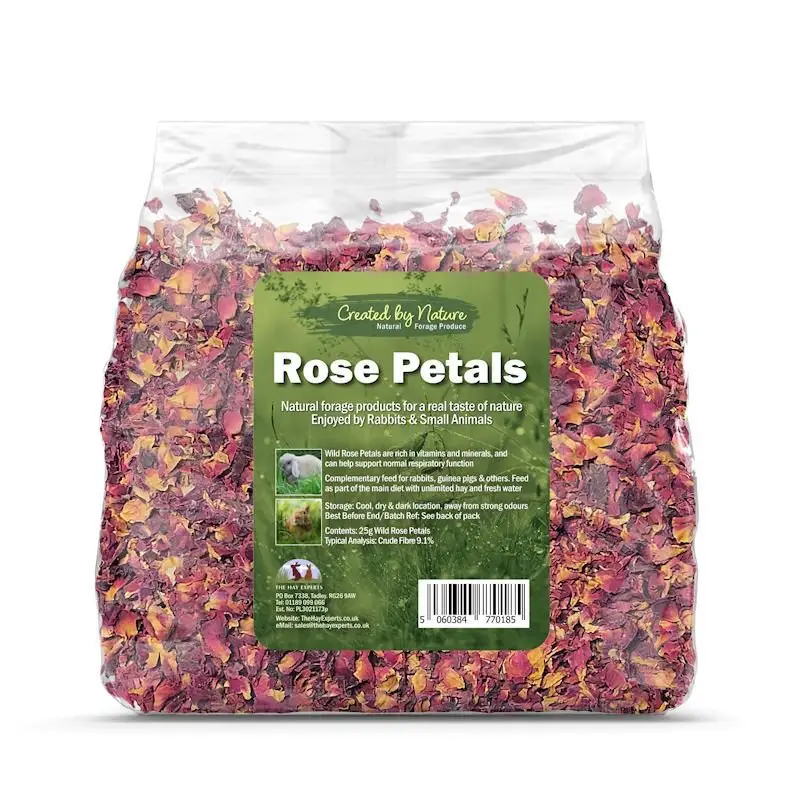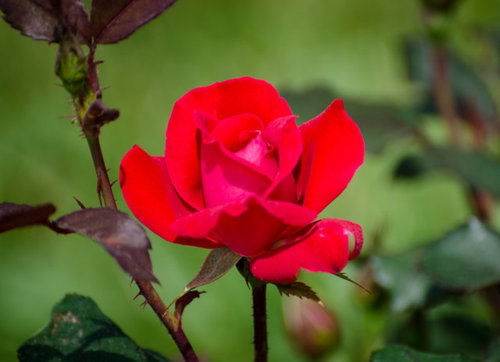Can Mice Eat Rose Petals

Yes, mice can eat rose petals. In fact, they are a good source of nutrition for them. Rose petals are high in vitamin C and other antioxidants, which can help boost the immune system.
They are also a good source of fiber, which is important for digestion.
Can Mice Eat Rose Petals?
The simple answer is yes, mice can eat rose petals. In fact, they are a great source of nutrition for them!
Rose petals are full of vitamins and minerals that help keep mice healthy, including vitamin C, potassium, and magnesium. Plus, the natural sugars in rose petals make them a tasty treat that mice love. So if you have roses in your garden, don’t be surprised if you see some nibbled on petals!
Use A Tea Bag And You Will Never See Spiders Or Mice In Your House Again!
Can a Mouse Eat a Flower?
Yes, a mouse can eat a flower. In fact, mice are known to be voracious eaters and will consume just about anything they can get their hands on, including flowers. While eating flowers may not seem like the most nutritious meal for a mouse, it is actually not uncommon for these little creatures to chow down on some petals from time to time.
Will Mice Eat Dried Flowers?
No, mice will not eat dried flowers. While they are omnivorous and will eat both plants and meat, they prefer fresh food. Dried flowers would be too hard for them to chew and digest properly.
What Dried Herbs Can Mice Eat?
Mice are small rodents that are found in homes and other buildings. They are known to eat a variety of things, including dried herbs. Some of the most common herbs that mice eat include: oregano, basil, thyme, and sage.
These herbs can be found in many different kinds of foods, such as pasta sauce, pizza, and soup.
What Foods are Toxic to Mice?
There are a number of foods that can be toxic to mice, and it is important to be aware of these if you own a pet mouse. Some of the most common toxic foods include chocolate, onions, garlic, avocado, and grapes. Chocolate can be particularly dangerous to mice, as it contains a substance called theobromine which can cause serious health problems.
If your mouse ingests any of these foods, it is important to seek veterinary advice immediately.

Credit: www.houzz.com
Can Mice Eat Basil
Yes, mice can eat basil. In fact, they love it! Basil is a great source of vitamins and minerals for mice, and the aromatic herb can also help keep them healthy and free from disease.
Can Mice Eat Dried Mango
Mice are often thought of as pests, but did you know that they can actually be fun and interesting pets? Mice are intelligent and social creatures that enjoy playing and interacting with their owners.
One important thing to remember if you’re considering getting a pet mouse is that they have very specific dietary needs.
Unlike most other animals, mice cannot digest lactose or fructose, so it’s important to avoid giving them foods like milk or candy.
Dried mango is a great treat for your pet mouse! Mice love the sweet taste and the chewy texture.
Plus, dried mango is a healthy snack option since it’s packed with vitamins and minerals. Just be sure to give your mouse only a small piece of dried mango at a time, as too much of this sugary treat can lead to obesity.
Are Rose Petals Safe for Cockatiels to Eat?
Cockatiels and rose petals: Although rose petals are non-toxic to cockatiels, it is important to exercise caution. Ensure that the petals are pesticide-free, clean, and free from any chemicals. While some birds may enjoy nibbling on rose petals, it is recommended to offer them as an occasional treat in moderation. Monitoring your cockatiel’s behavior and consulting with a veterinarian is always a wise approach.
Can Mice Eat Cucumber
Sure, mice can eat cucumber! In fact, cucumber is a healthy and refreshing treat for these little guys. Just cut up a small piece of cucumber and place it in their cage.
Your mouse will enjoy nibbling on the crunchy vegetable.
Conclusion
Yes, mice can eat rose petals. In fact, roses are a good source of food for them. Roses are high in sugar and provide a lot of energy for mice.
They also contain vitamins and minerals that are essential for mouse health.
